Desktop wallpaper from National Geographic March 2013
Categories: World
By Pictolic https://pictolic.com/article/desktop-wallpaper-from-national-geographic-march-2013.htmlWe present to your attention another selection of desktop wallpapers from National Geographic for March. As always, only the best pictures about nature, culture and the world around us, taken by both professionals in their field and talented amateurs.
(Total 31 photos)
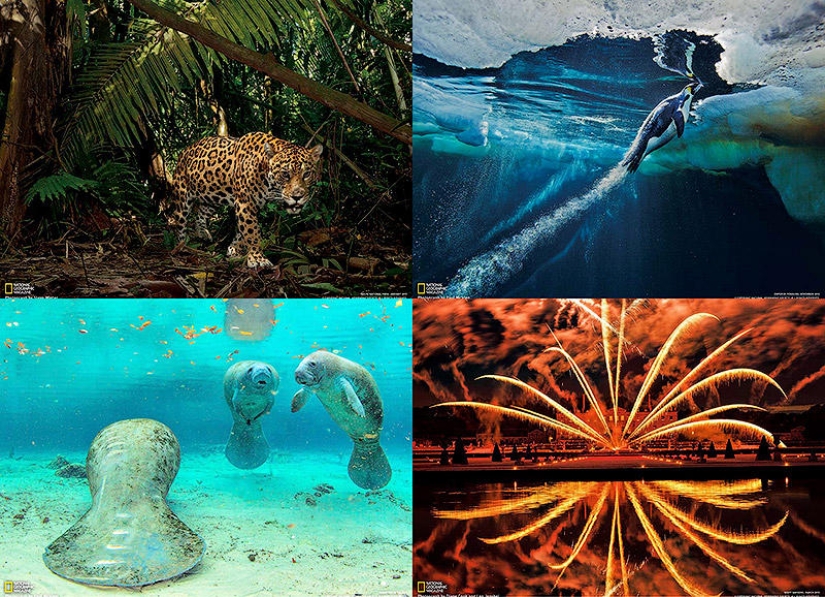
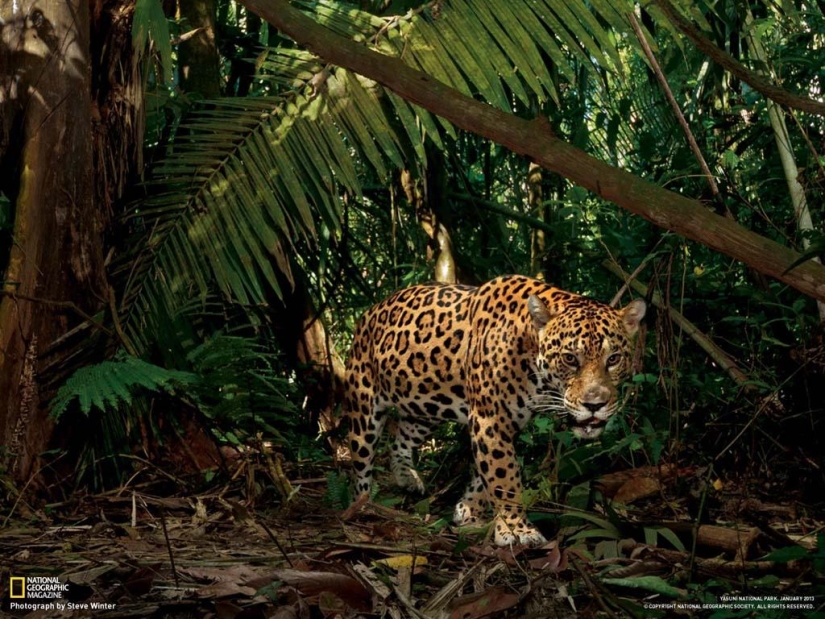
1. Jaguar on the hunt. The photo was taken with a remote camera at a place where peccaries, a favorite prey of the jaguar, often appear. For the Huaorani, one of the local indigenous groups, jaguars are ancestral spirits who visit shamans in their dreams to tell where the forest has the most prey. (Steve Winter)
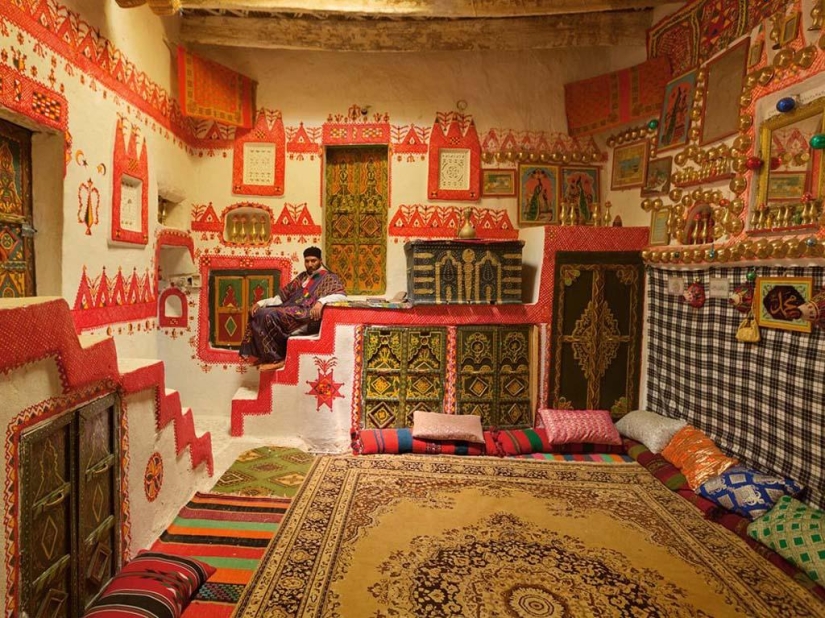
2. Qasim Abdul Salam Habib, 39, opened his ornate 600-year-old home to foreign tourists in Ghadames, Libya. The house is in need of repair, and there are few visitors now, but Habib is an optimist: “I want to see a democratic Libya,” he says. (George Steinmetz)
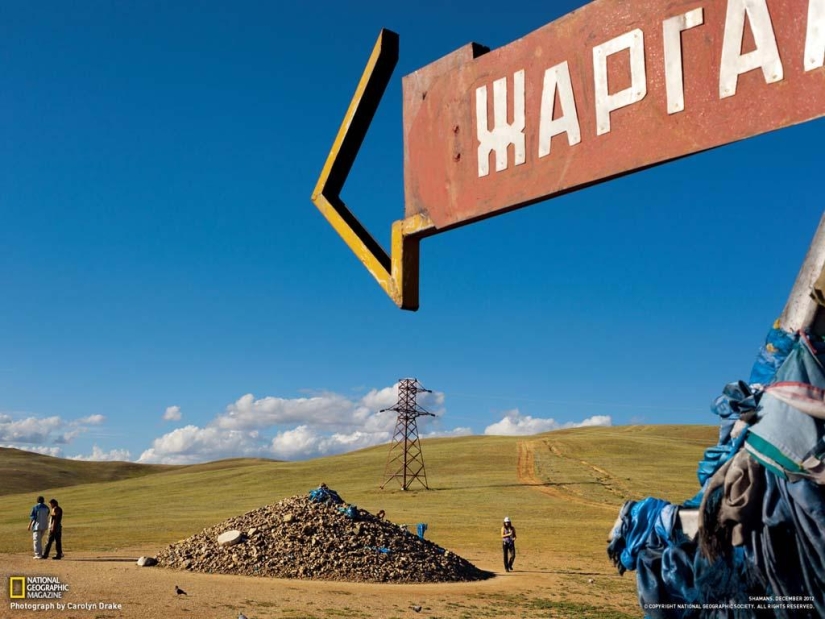
3. A stone mound, or ovoo, in Mongolia marks the place where the spirits supposedly appeared. To pay tribute to them, travelers must go around the mound three times. (Carolyn Drake)
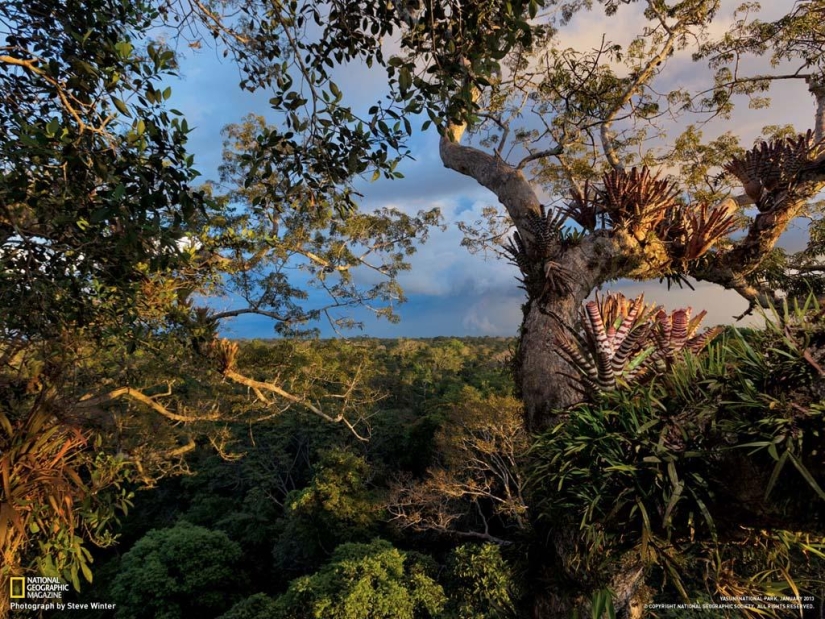
4. From the bromeliads, ferns and orchids that cover the trees 48m from the forest floor, to the jaguars that roam below, Ecuador's Yasuni National Park is famous for its many plant and animal species. And all of them are now threatened by the oil industry. (Steve Winter)
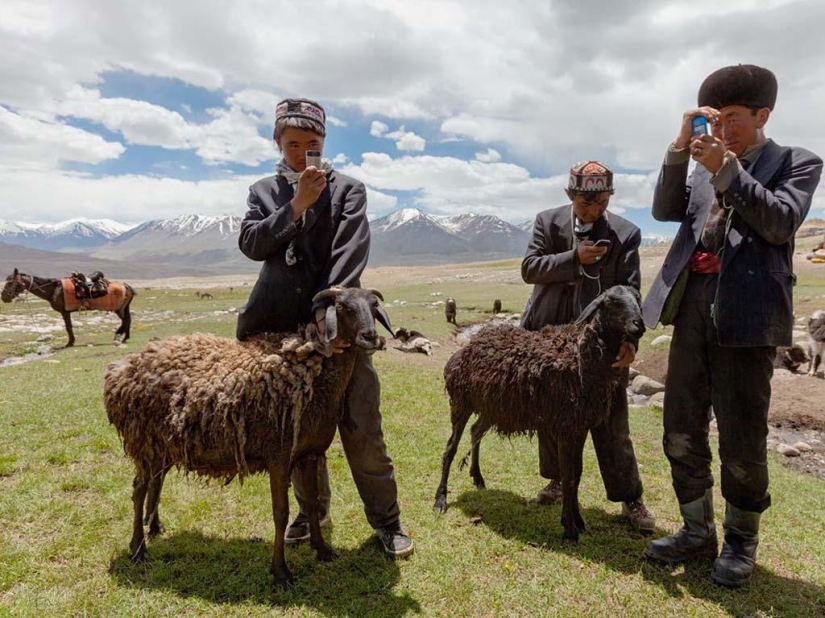
5. Kyrgyz shepherds with mobile phones that they bought and charge using solar panels. Although phones are useless for communication, they are used to listen to music and take photos. (Matthieu Paley)
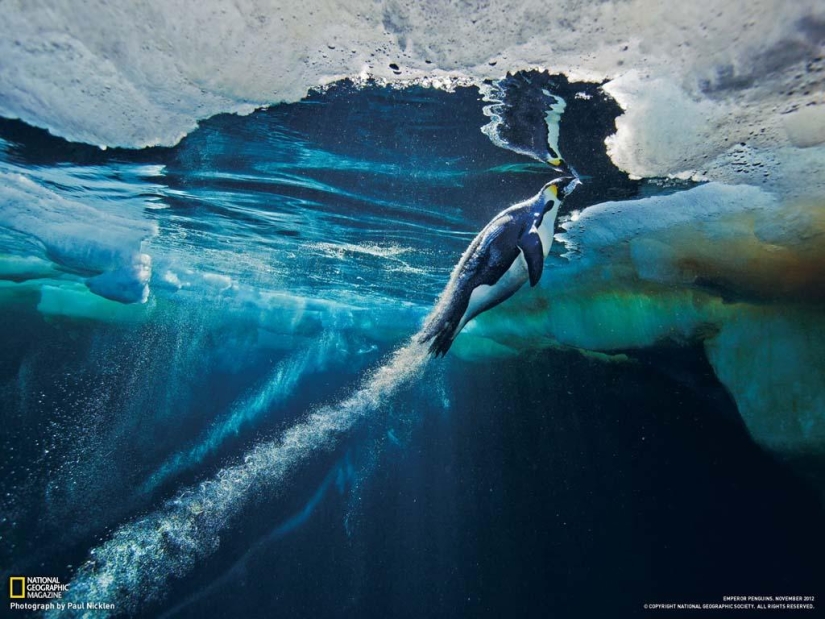
6. The penguin is preparing to get out of the water onto the ice floe, and it is at this moment that he reaches his maximum speed. (Paul Nicklen)
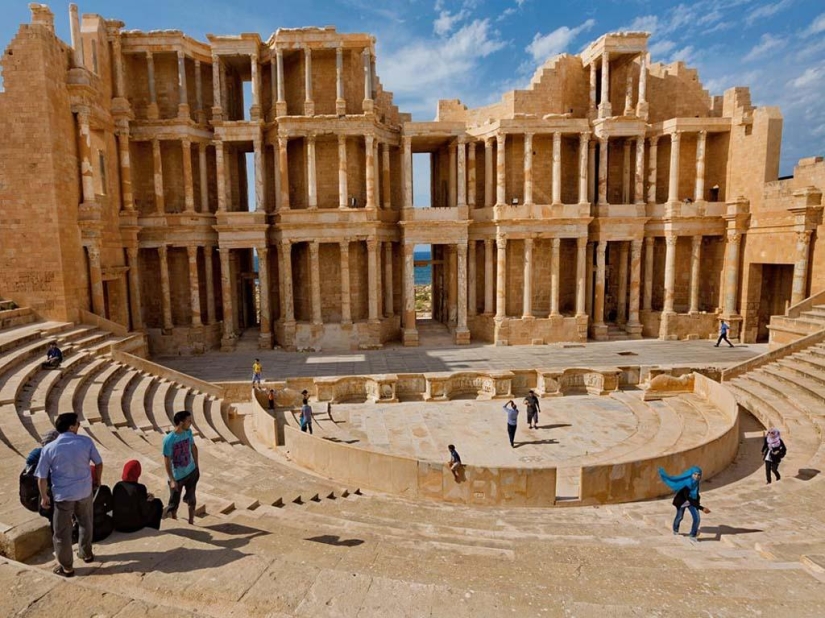
7. Libyans enjoy a walk through the ancient Roman theater Sabratah - one of the largest in Africa. (George Steinmetz)
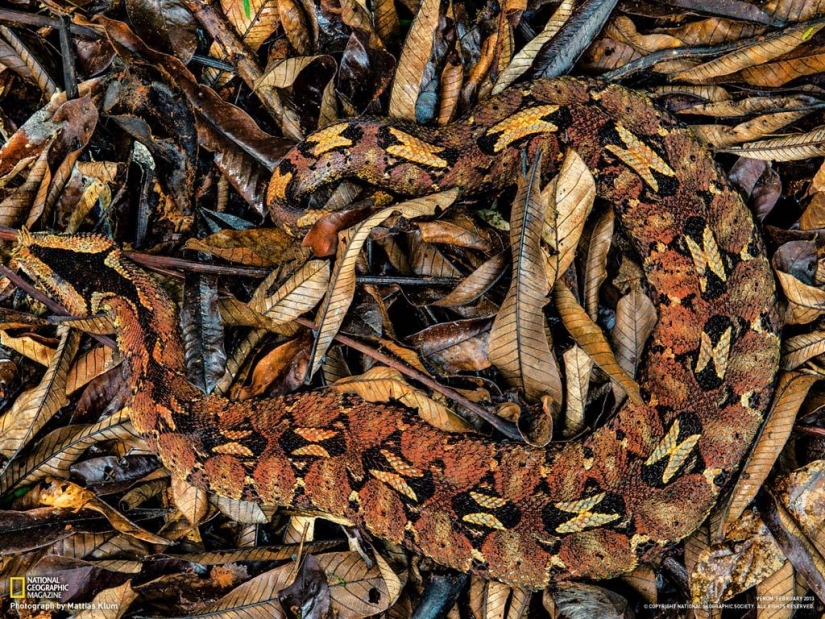
8. The surprise effect gives this Cameroon rhinoceros viper an edge over its prey. A fast-acting poison completes the killing process. Vipers provide valuable toxins, including those used in medicines for hypertension and heart attacks, and to control bleeding during surgeries. (Mattia Klum)
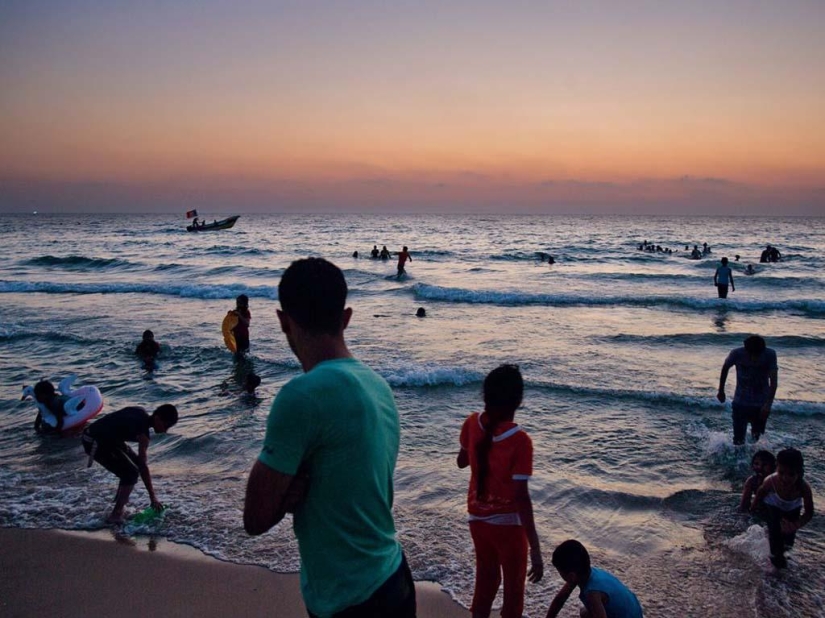
9. Residents of Gaza in the Mediterranean at sunset. The Israelis blocked many places on the Gaza coastline to stop the supply of smuggled weapons and other goods. But the sea remains the only place for the Gazans to see a clear horizon. (Paolo Pellegrin)
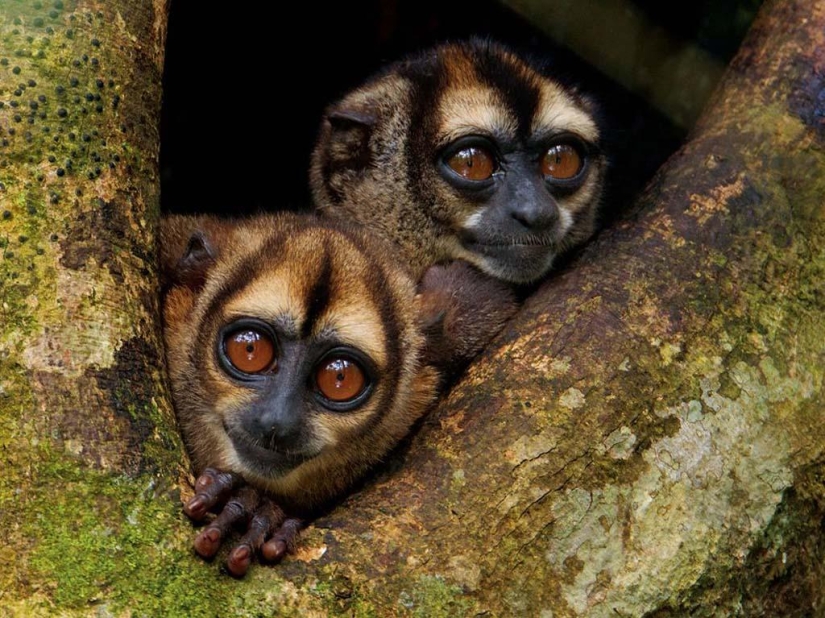
10. These monkeys are one of 10 confirmed species that live in the Yasuni National Park in Ecuador. (Tim Laman)
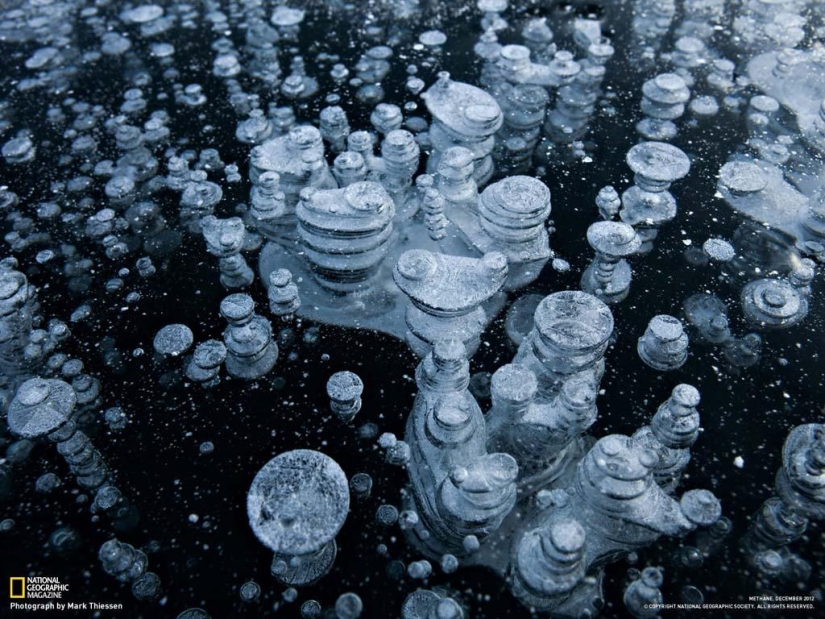
11. The first autumn snowfall and frost sealed the methane in Alaska, which bubbled up from the bottom. Eternal he will fall into the air. During the thaw, more and more new lakes appear throughout the Arctic Circle. (Mark Thiessen)
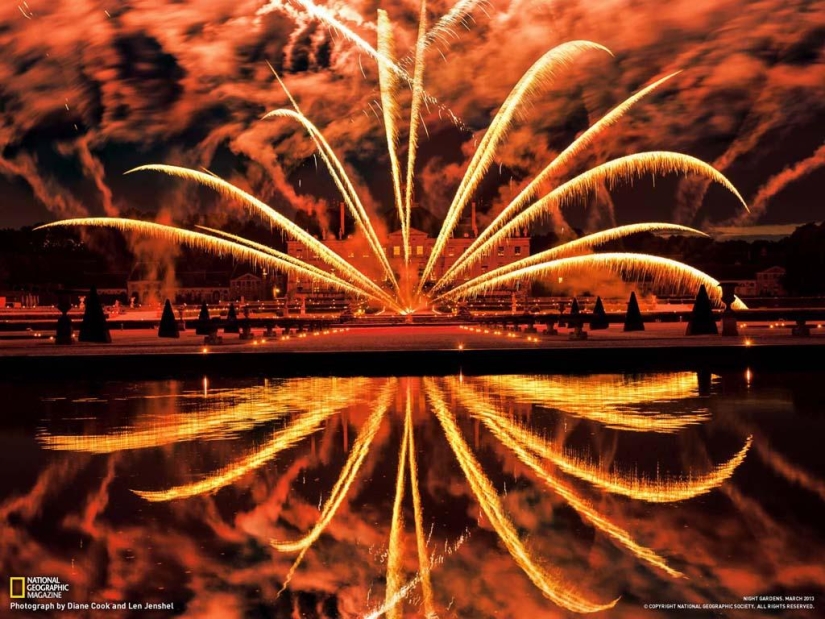
12. Similar festivities in honor of the end of winter at the estate of Vaux-le-Viscount were held for its owner Nicolas Fouquet in 1661. Louis XIV, as they say, came, saw, conquered: he confiscated the estate, and put Fouquet himself in prison. (Diane Cook and Len Jenshel)
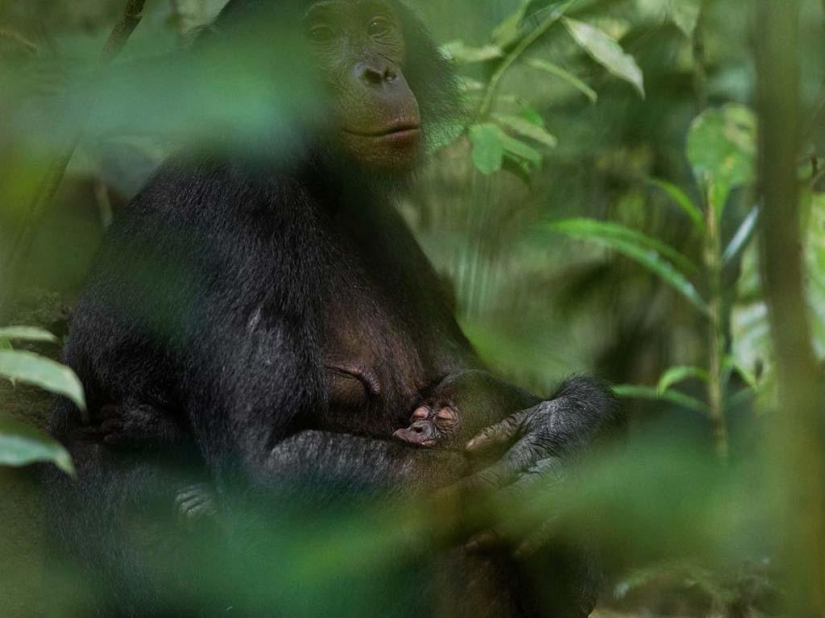
13. Calm Zoya cradles Zizu after feeding. Male bonobos, unlike chimpanzees, do not form same-sex groups to become stronger. A male's best friend from birth to adulthood is his mother. (Christian Ziegler)
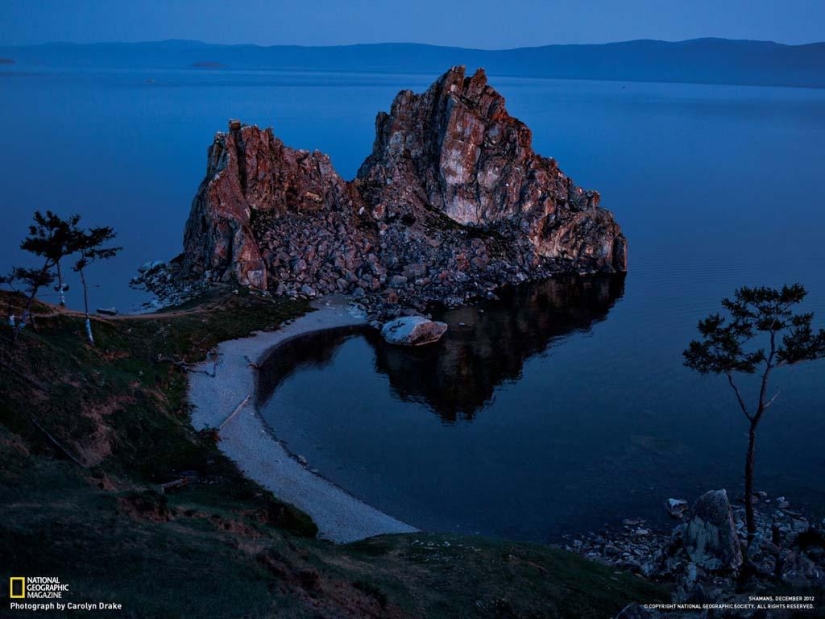
14. The peaks of the Burkhan rock, like twin towers, stick out of Lake Baikal, the largest freshwater body of water. People all over Asia believe that the spirits of Baikal live in this rock on the island of Olkhon, where they regularly make pilgrimages. (Carolyn Drake)
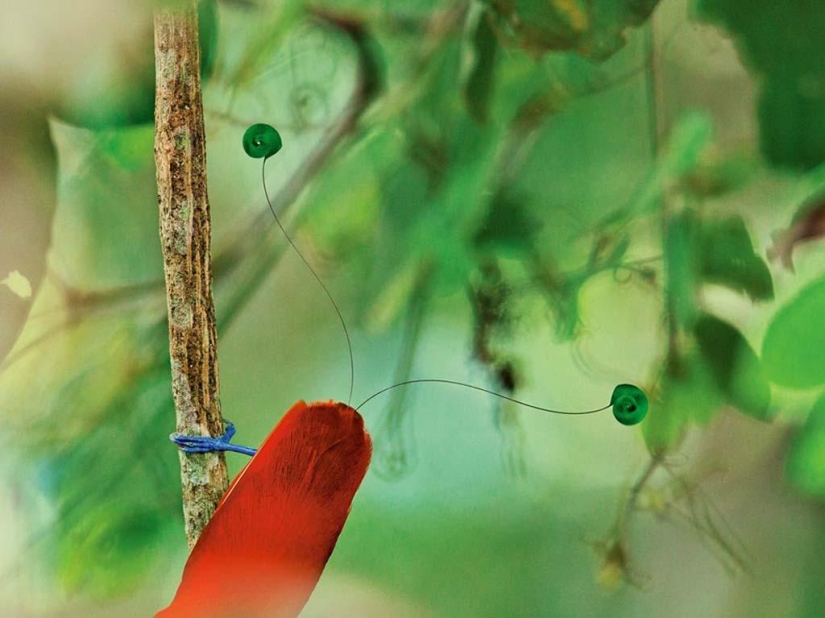
15. Royal bird of paradise clings to a vine in the rainforest of New Guinea. Its bright colors and strange tail feathers have evolved over many millennia as a result of competition for females. (Tim Laman)
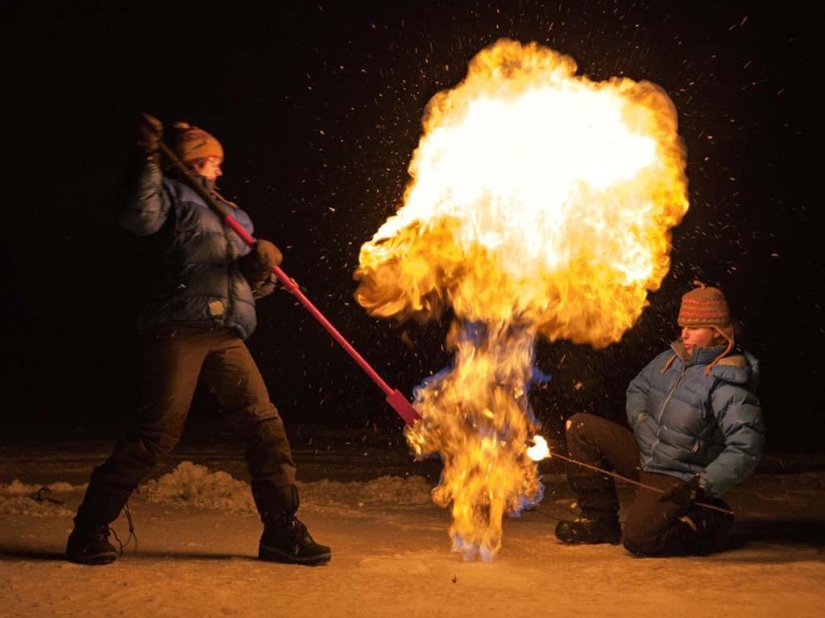
16. Methane bubbles up in lakes across the Arctic. In this photo, environmentalist Kathy Walter Anthony (right) ignites a large bubble of methane that has been trapped under a layer of ice but has been "liberated" with an ice pick. (Mark Thiessen)
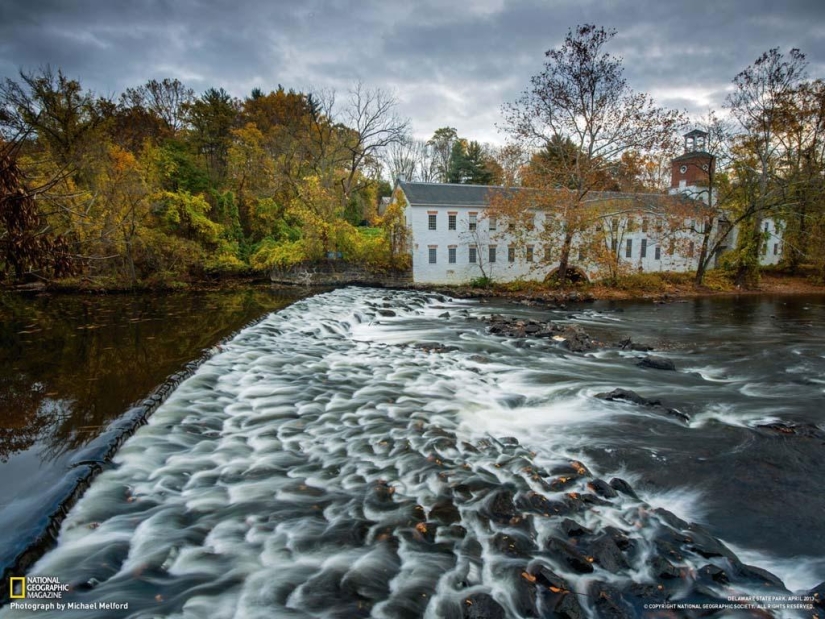
17. The Brandywine River, which played a large role in American industry in the 19th century. This Walker textile factory is just one of the many businesses that dot the banks of the river. Upriver, DuPont made gunpowder, other factories made everything from paper to snuff. (Michael Melford)
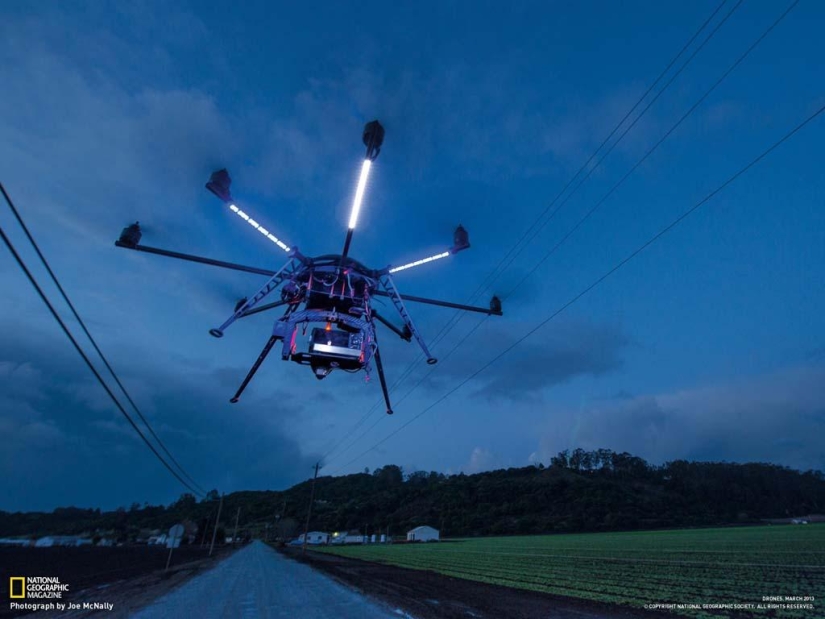
18. Stable camera platform with eight blades. And for only $5,000. (Joe McNally)
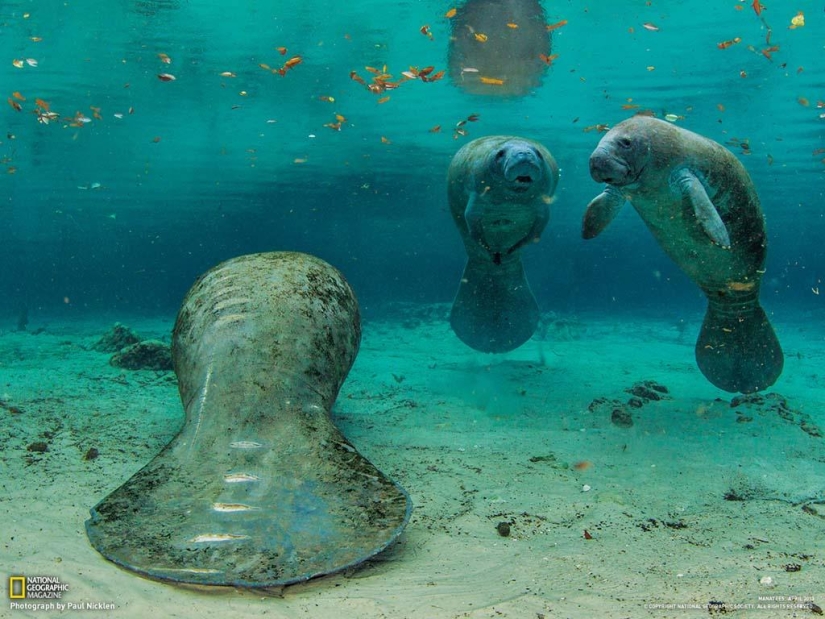
19. This manatee had propeller scars on its tail, proof that it swam too close to the boat. One in four of Florida's 360 manatees in 2012 died from boat strikes. The introduction of zones where you need to slow down helped a lot, although many simply do not follow the established rules. (Paul Nicklen)
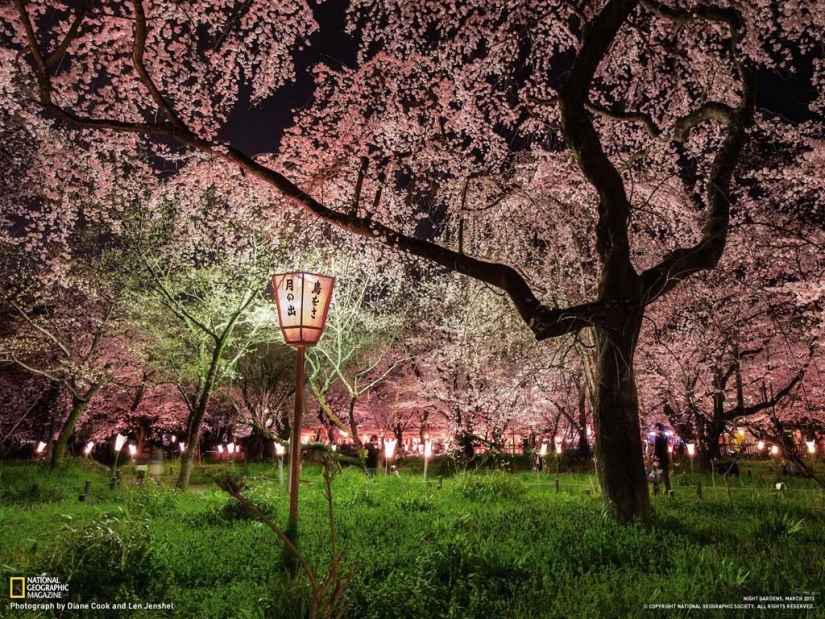
20. In Japan, nighttime cherry blossoms in the spring, like at this Hirano Shrine in Kyoto, are a special event. “The only flaw in sakura is the crowd that gathers to look at them,” the poet Saigyo once wrote. (Diane Cook and Len Jenshel)
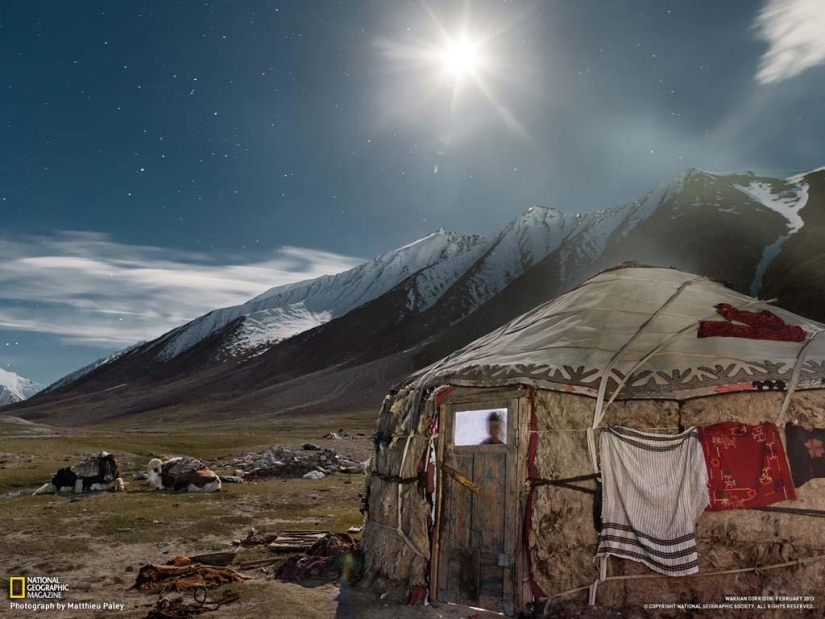
21. Blanketed yaks rest at the yurt of a young Kyrgyz couple on the eve of a summer trading trip. These portable houses made of interwoven sticks covered with felt can be taken apart and reassembled for seasonal migration. Wooden doors are transferred to the bare plateau from lower heights. (Mattieu Paley)
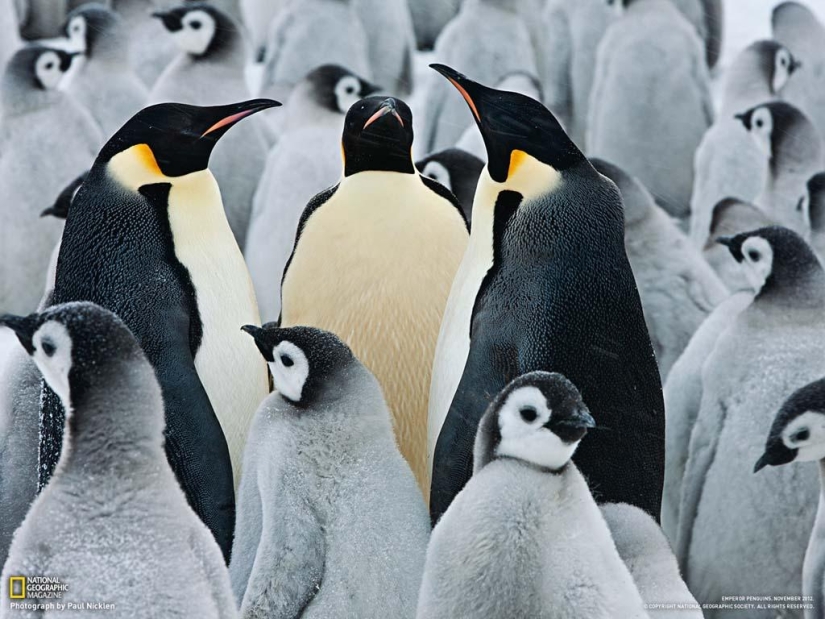
22. It is safer to live in a colony, because it is more likely that a predator will not notice you. (Paul Nicklen)
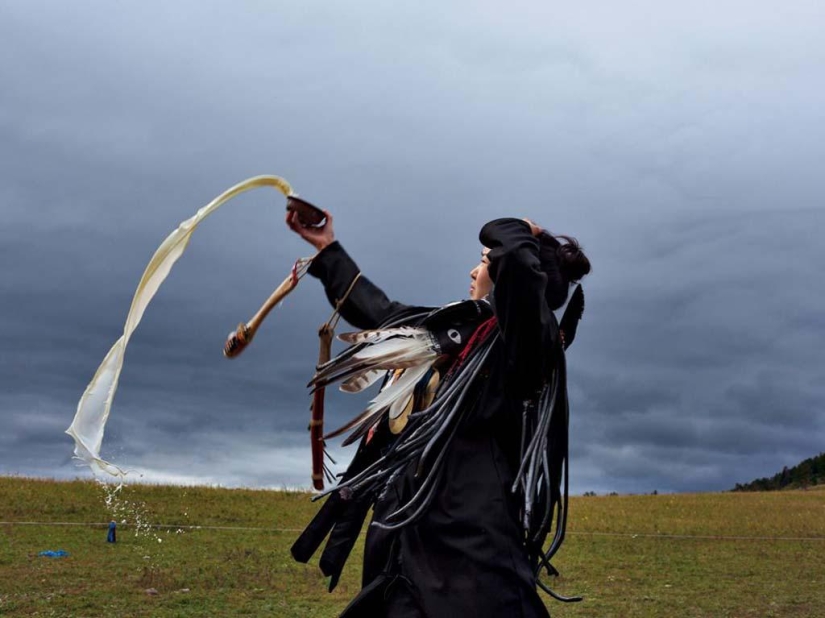
23. A novice shaman makes milk offerings to the spirits outside the Mongolian capital of Ulaanbaatar. (Carolyn Drake)
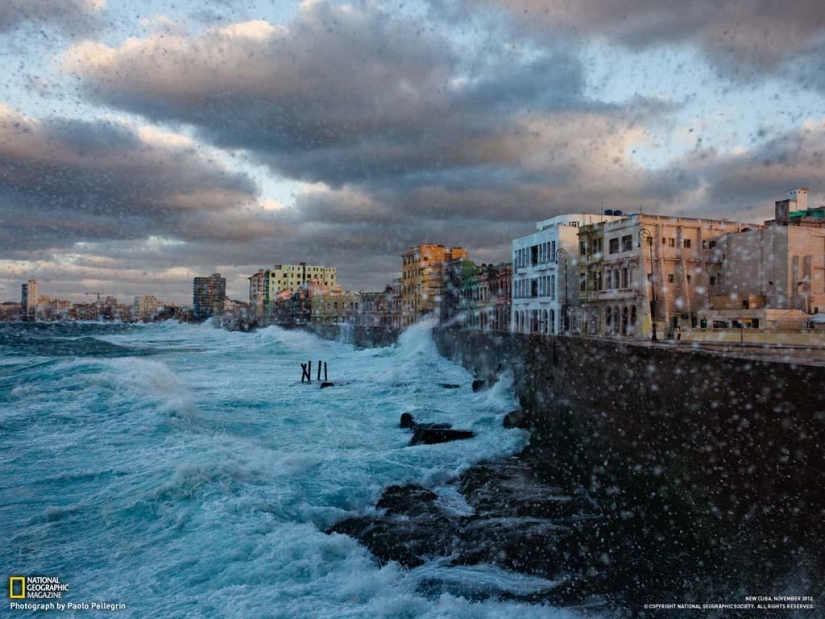
24. The age-old stone wall of the Malecon - the famous waterfront of Havana - protects the city from rolling sea waves. On calmer nights, people come here for a walk. (Paolo Pellegrin)
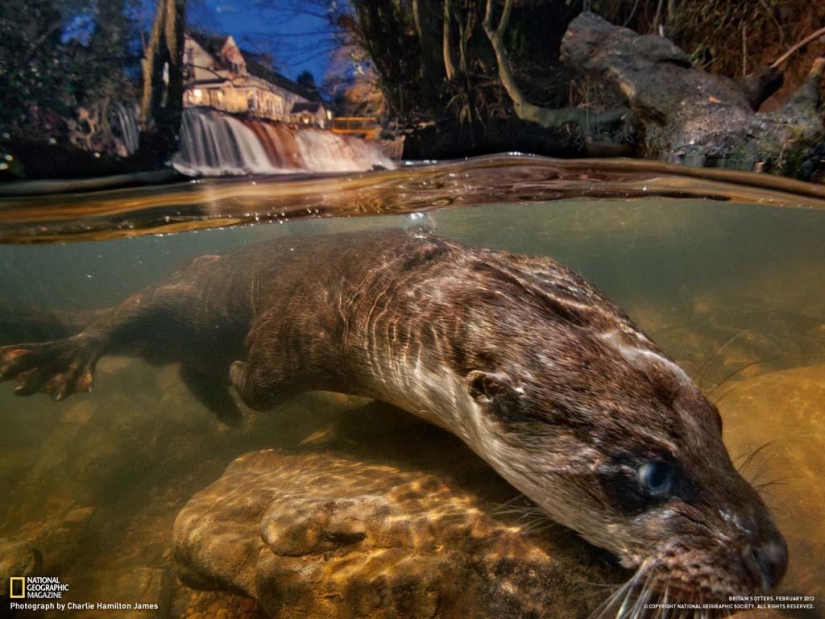
25. A female otter is looking for prey in a river in western England. Under water, otters' eyes become even more protruding to better see fish. (Charlie Hamilton James)
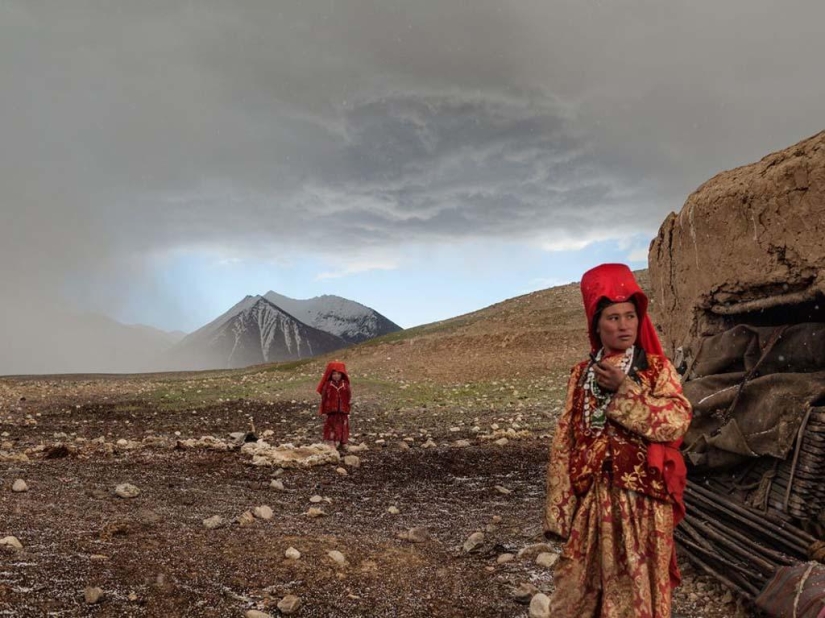
26. After the hail, Kyrgyz nomads left their houses near the Aksu River in a remote part of Afghanistan. Sometimes nomads stop here for a few weeks between the migration season, if there is too little grass for their livestock at the summer or winter camp. (Matthieu Paley)
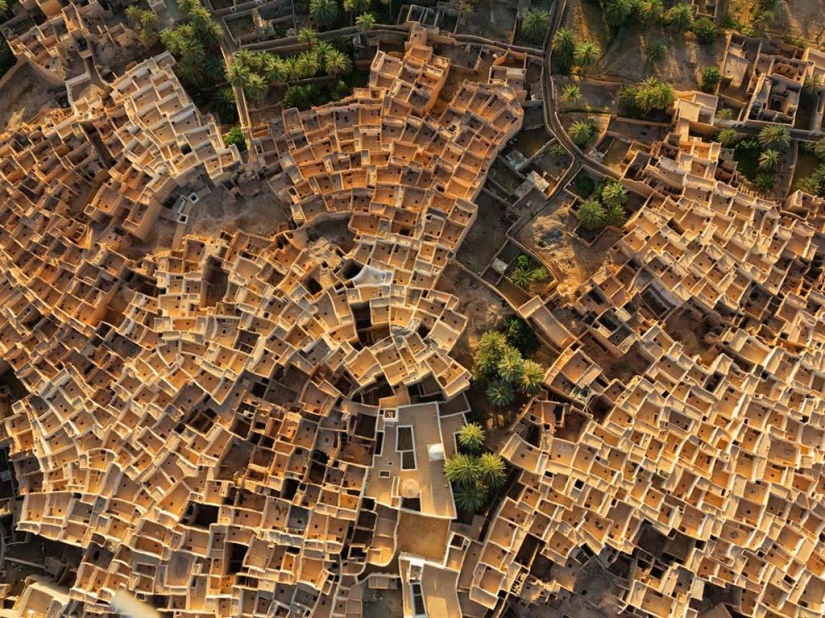
27. Dense buildings of traditional houses made of clay, bricks and palm leaves have stood for centuries in Ghadames, a pre-Roman oasis in the Sahara. Women move freely on the rooftops, hidden from the gaze of men. (George Steinmetz)
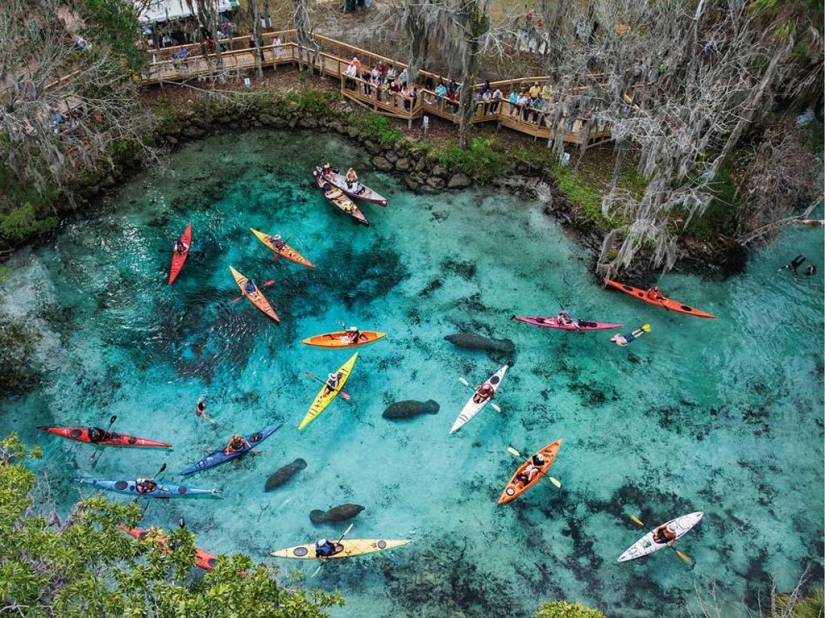
28. Kayaking at Three Sisters Spring, where humans and manatees support a controversial existence. To get to warm waters, these animals need to survive the winter, and they often have to swim past such gatherings of kayaks and divers. (Paul Nicklen)
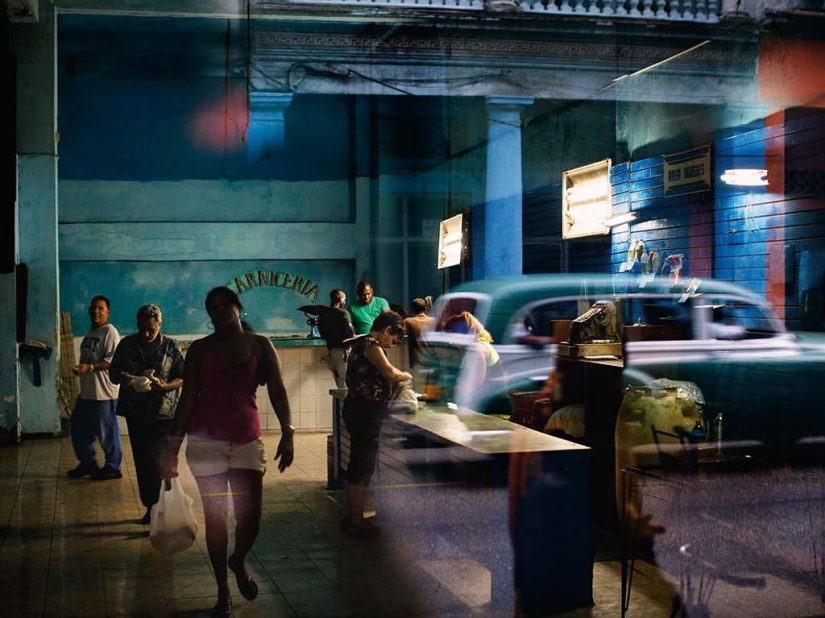
29. Buying vegetables from the meager stalls of the market in the center of Havana is a real challenge. Cubans receive coupons to buy rice, beans and oil at low prices. But this is not enough to survive. (Paolo Pellegrin)
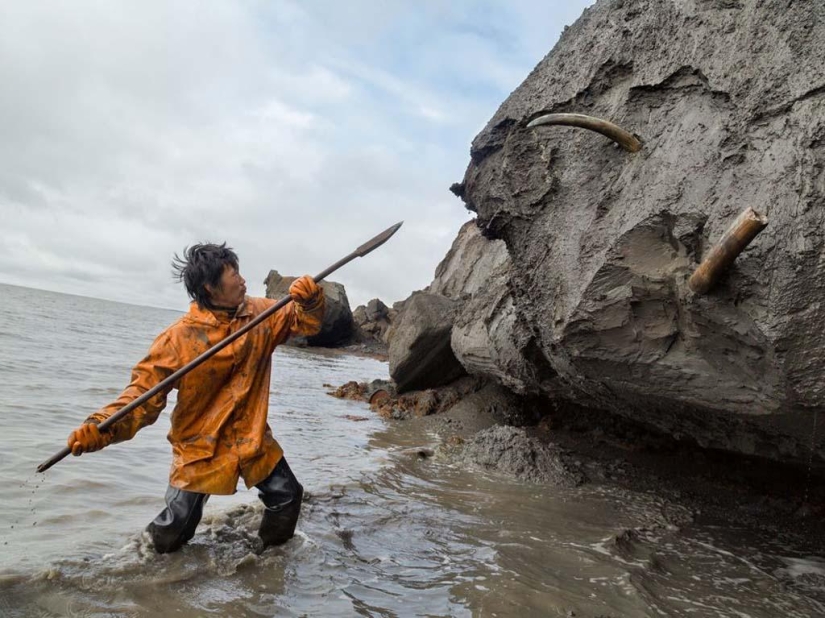
30. Siberian hunter Slava Dolbaev uses a spear to get a mammoth tusk from a coastal ice cliff. It may take several hours or even days to get one tusk. Hunters often leave colored beads or silver jewelry as offerings to local spirits. (Evgenia Arbugaeva)
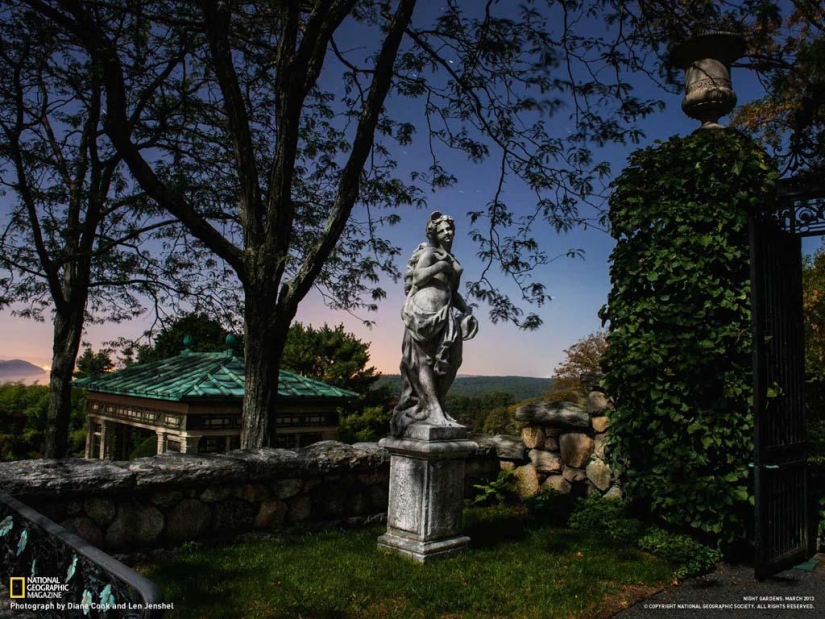
31. “To know the whole history of the Kaikuet gardens, you need to see them in the evening,” says garden designer William Welles Bosworth. (Diane Cook and Len Jenshel)
Keywords: National Geographic | Wallpapers | Desktop
Post News ArticleRecent articles

It's high time to admit that this whole hipster idea has gone too far. The concept has become so popular that even restaurants have ...

There is a perception that people only use 10% of their brain potential. But the heroes of our review, apparently, found a way to ...
Related articles

No one knows the recipe for a masterpiece, but there are rules that will bring you closer to it. It was about them that Steve ...

"It's not about the photographer, it's all about the subject," - this is how photographer Bob Holmes begins his story about how to ...

Steve McCurry has been one of the most iconic personalities in modern photography for three decades. He has dozens of magazine and ...

New Year's is a time to surprise and delight loved ones not only with gifts but also with a unique presentation of the holiday ...